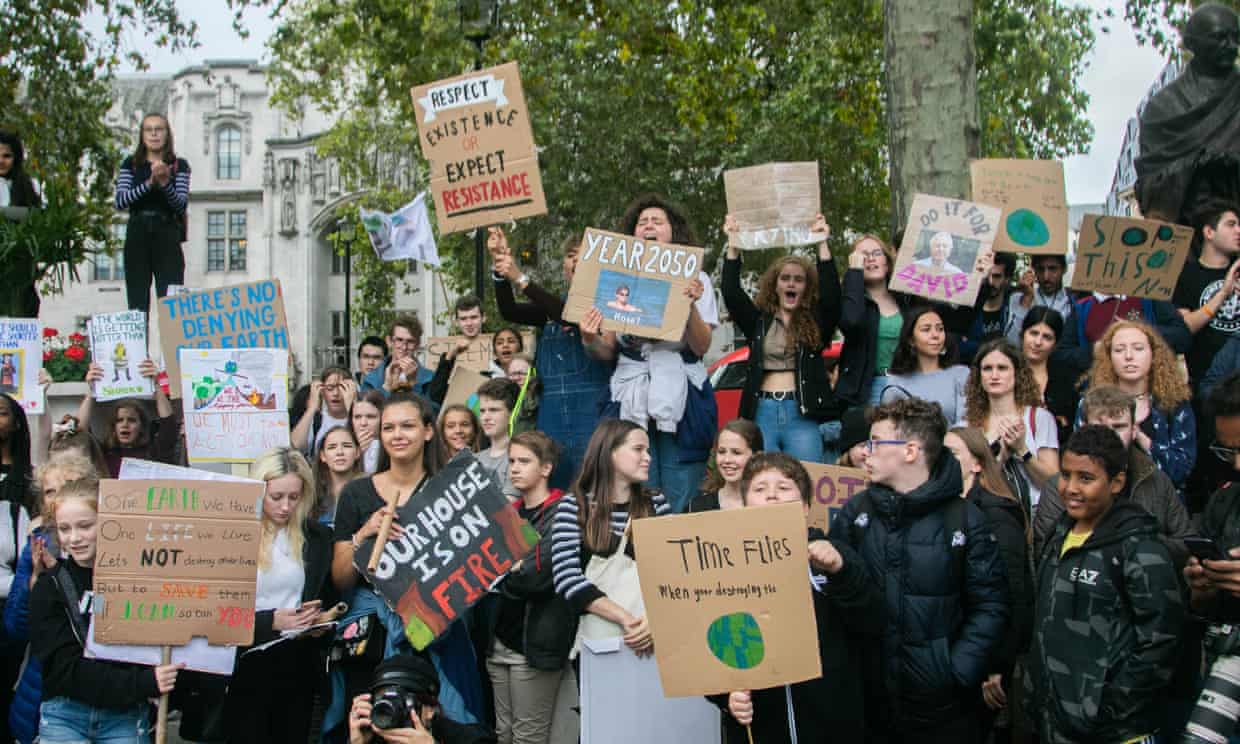
Children across the UK go on strike to demand action on climate
by Matthew TaylorPupils to declare December vote a ‘climate election’ as data highlights urgency of crisis
Children and young people in more than 100 towns and cities across the UK are walking out of classrooms on Friday for the latest youth strike to highlight the escalating climate crisis.
Strikers are focusing on the polls next month, which they have pledged to make a “climate election” by demonstrating the growing public concern about the ecological crisis.
The events in Britain are part of a global climate strike by tens of thousands of people in more than 150 countries from Chile to Madrid in Spain, where next week’s UN climate summit will take place.
Greta Thunberg, the Swedish teenager who inspired the movement when she staged a solo protest outside the Swedish parliament last year, said despite millions taking to the streets those in power had taken no meaningful action.
“World leaders say they hear us and that they understand the urgency,” she said. “But in one year of climate strikes, nothing has changed, nothing.
“For every step made forward, we went five steps back. The scientists say we have never been less likely to stay below 1.5 degrees [above pre-industrial levels].”
Friday’s action comes after more alarming news on the scale and scope of the climate crisis. This week scientists warned the world may already have crossed a series of climate tipping points posing an “existential threat to civilisation”.
Two days earlier a separate study from the UN’s World Meteorological Organization revealed that the concentration of climate-heating greenhouse gases in the Earth’s atmosphere had hit a record high.
The climate crisis has emerged as one of the key issues in the UK election. On Thursday evening the main party leaders – except the prime minister, Boris Johnson, who refused to participate – took part in a climate and nature TV debate.
Beth Irving, from the UK Student Climate Network, which helped organise Friday’s strikes, said it was crucial political leaders were held to account over their plans to tackle the emergency.
“The upcoming election will determine how the UK addresses climate change, with significant effects for the planet and its people. We have just a small window of time for action and the next few years are crucial.”
The strikes are part of a global movement that began in August last year when Thunberg began a weekly solo protest outside Sweden’s parliament. Since then millions of people in thousands of towns and cities around the world have taken part in an effort to raise the alarm.
Public concern over the climate is now at its highest recorded level, while a majority of voters say climate will influence how they vote in the upcoming election. In September, 300,000 people in the UK joined the last global climate strike, which coincided with the United Nations climate summit.
Irving said: “Over the last months, young people have taken to the streets to demand strong climate action but many of us cannot vote; this week we will be taking to the streets to make our voices heard. This must be a climate election.”